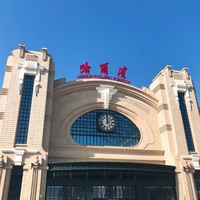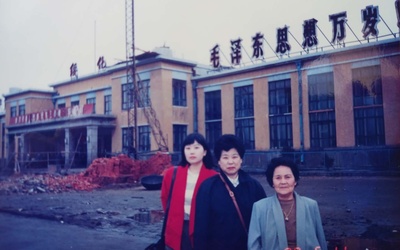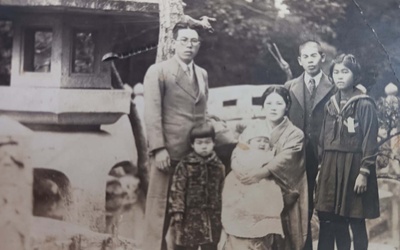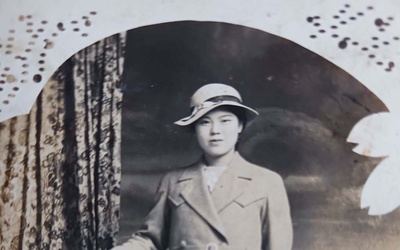A record of my mother, born in Manchuria, who returned to Japan after the war

Stories from this series

Part 3: Return to Manchuria
Oct. 19, 2022 • Keiko Fukuda
Following in my grandfather's footsteps More than 40 years have passed since my mother and grandmother left Manchuria, and in 1988, 34 years ago, I put into action a plan I had been thinking about for a long time. It was to visit the former Manchuria with my mother, grandmother, and myself. At that time, I was working at a publishing company in Tokyo. I had seen the film "The Last Emperor" directed by Bernardo Bertolucci, which depicts the life …

Part 2: Postwar Repatriation
Oct. 12, 2022 • Keiko Fukuda
End of the War and the Journey to Xinjing It was in May 1945 that Emiko's father, Susumu, went to the battlefield. "Because my father had poor eyesight, he was one of the last to be drafted, and he was also the lowest-ranked soldier. He was drafted locally in Manchuria, and I saw him off at Suika Station with my mother, my younger brother Masanori, who was still a small child at the time, and my sister Fumiko. My father …

Part 1: Life in Manchuria
Oct. 5, 2022 • Keiko Fukuda
"Maybe he was a Japanese orphan." When I was in high school, people called "Chinese orphans" came to Japan and held a press conference. They called out in tearful Chinese to their parents who may be living somewhere in Japan, saying "I want to see you." They looked Chinese no matter how you looked at them, dressed in Mao suits and unable to understand Japanese. However, they were actually genuine Japanese who were separated from their parents in what was …
 We’re looking for stories like yours!
Submit your article, essay, fiction, or poetry to be included in our archive of global Nikkei stories.
Learn More
We’re looking for stories like yours!
Submit your article, essay, fiction, or poetry to be included in our archive of global Nikkei stories.
Learn More
New Site Design
See exciting new changes to Discover Nikkei. Find out what’s new and what’s coming soon! Learn MoreAfter graduating from International Christian University, Keiko Fukuda worked at a publishing company for an information magazine in Tokyo and moved to the U.S. in 1992. She served as Editor-in-Chief of a Japanese information magazine in Los Angeles until 2003 and transitioned to freelance work that same year. She conducted interviews with various people and reported on topics such as education in the U.S. and Japanese food culture. In 2024, she relocated her base to her hometown of Oita and has continued her reporting and writing online. Website: https://angeleno.net
Updated October 2024

Discover Nikkei Updates



See exciting new changes to Discover Nikkei. Find out what’s new and what’s coming soon!

